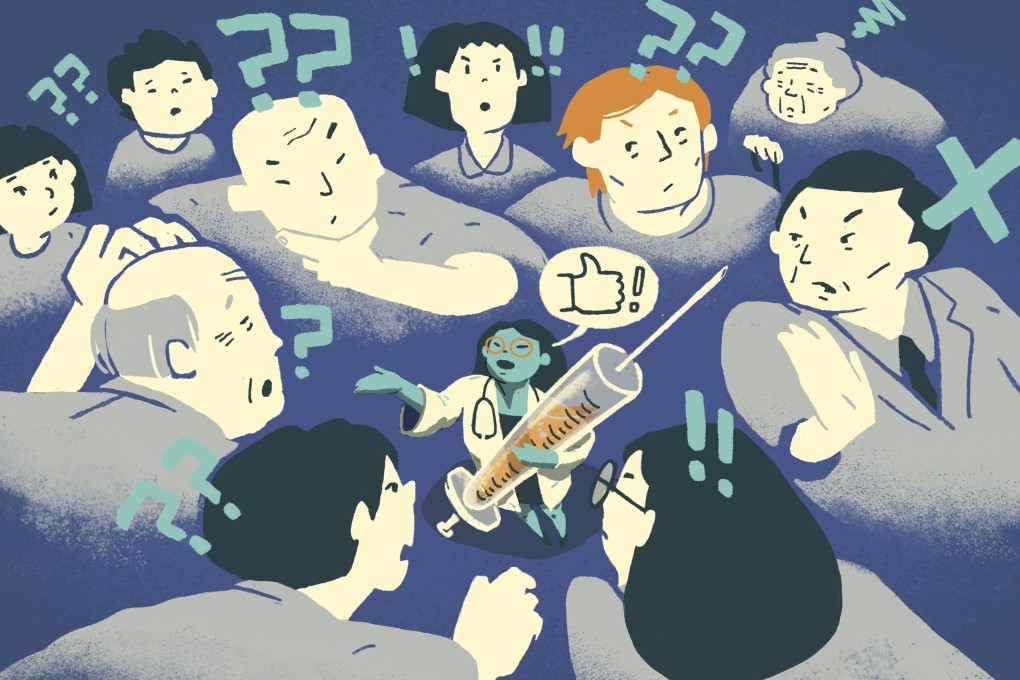Advertisement
Coronavirus: ‘vaccine bubble’ incentives aren’t enough, Hong Kong must get creative to dispel rumours, share facts about jabs, experts say
- Sluggish response to vaccine drive reflects mistrust, worries over safety that must be addressed
- Instead of ‘top-down’ approach, try getting well-known figures to promote jabs, experts suggest
Reading Time:8 minutes
Why you can trust SCMP
99+

This is the first of a two-part series looking into whether Hong Kong’s vaccination programme against Covid-19 is on the right path and how the city can boost the vaccination rate to create herd immunity.
Hong Kong has succeeded in containing wave after wave of Covid-19 infections, but its goal of reaching herd immunity through vaccination remains far from reach.
Public distrust of the government and fears about the safety of vaccines have kept Hongkongers from stepping forward for their jabs.
Advertisement
Since the government’s vaccination campaign began in late February, only about 1.1 million of the city’s 7.5 million people have received their first dose, including almost 720,000 who received their second shot.
With less than 15 per cent receiving at least one jab, medical and media experts say Hong Kong must overhaul its communication strategy to dispel misconceptions and fears.
Top-down messaging from the authorities did not help given a serious underlying problem – weak governance – in the city over the past few years, they said.
Advertisement
Advertisement
Select Voice
Select Speed
1.00x